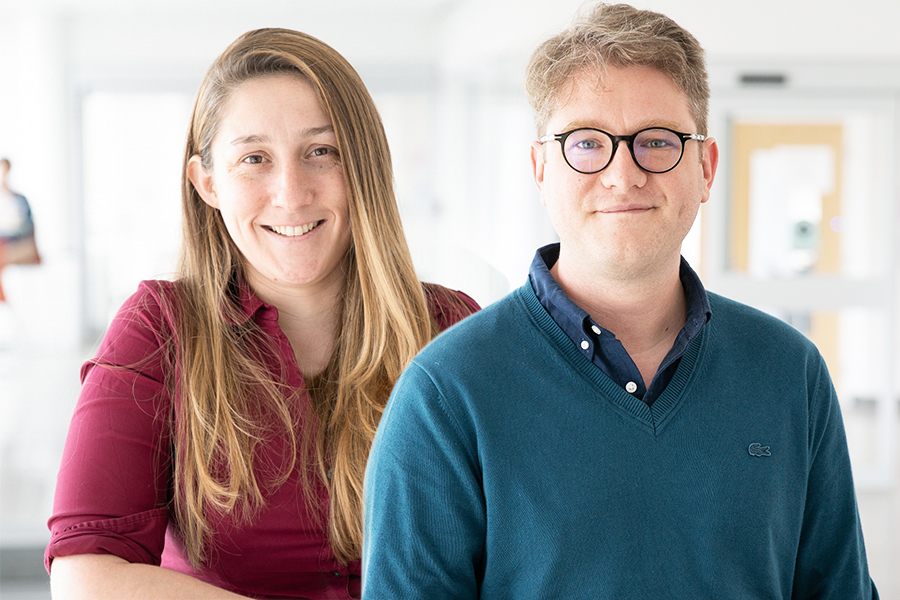
Meiklejohn and Miller Tapped for Amazon Research Award
By Josh Quicksall
A research team consisting of the Institute for Software Research’s Heather Miller and Chris Meiklejohn, is among those selected to receive a coveted 2020 Amazon Research Award.
The award by the tech juggernaut seeks to support critical, practical research at academic institutions and non-profit organizations in areas that align with Amazon’s mission to advance user-focused scientific exploration. Founded in 2015, the award is intended to support the work of one to two graduate students or postdoctoral students for one year, under the supervision of a faculty member.
Meiklejohn and Miller’s submission, “Directed automated explicit-state model checking for distributed applications”, aims to help developers find issues that would bring down large web services like Netflix or Audible.
Current common practice is for organizations to deploy all of these web services into production while attempting to generate random failures within live production systems that have users — all in order to backtrack and find subtle issues between components of these services. This approach can prove to be time and resource intensive for many development organizations.
To address this, the team designed a tool for systematically identifying resilience bugs in microservice applications before they can reach production, which they call Filibuster.
“Instead of catching these issues when these large microservice applications (e.g., Netflix, Audible) are deployed, this tool uses a novel algorithm for test generation to find these downtime-inducing issues during CI time” Miller explains. “The days of having to randomly test your Netflix-size app in production, and engineers being “on call” and woken in the middle of the night to fix outages, is soon over!”
“The 2020 Amazon Research Awards recipients represent a distinguished array of academic researchers who are pursuing research across areas such as ML algorithms and theory, fairness in AI, computer vision, natural language processing, edge computing, and medical research,” said Bratin Saha, vice president of AWS Machine Learning Services. “We are excited by the depth and breadth of their proposals, as well as the opportunity to advance the science through strengthened connections among academic researchers, their institutions, and our research teams.”
Projects such as these - projects with the potential for real, near-term impact - are the hallmark of ISR. “ISR has always taken great pride in tackling real problems and finding practical solutions,” notes ISR Director, Jim Herbsleb. “Awards like this are a great way to interact with a leading tech firm, cement our close relationships with an important industry partner, and try out our ideas in the real world.”